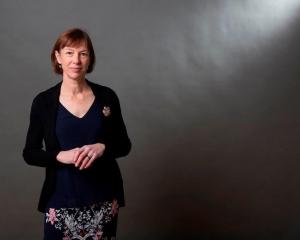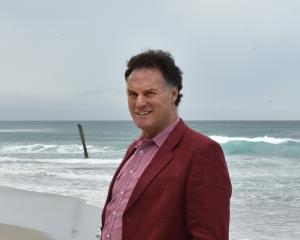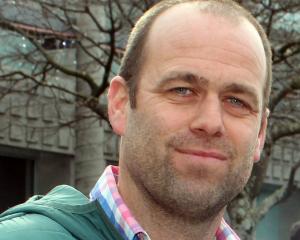
That’s the assessment of Dunedin and Districts Disabled Persons Assembly kaituitui-community networker Chris Ford, in the wake of three disabilityfocused candidate forums held over three days last week.
Candidates contesting seats on the Dunedin City Council, Otago Regional Council and Southern District Health Board took part in the ‘‘My Votes Count’’ forums, organised by the Disabled Persons Assembly (DPA) alongside Disability Information Service, People First, Blind Citizens New Zealand Otago Network and Otago Deaf Society.
Mr Ford was pleased with the audience turnout for the DCC and ORC candidate forums, but said the Southern DHB forum attracted fewer people.

Southern DHB candidates were asked about the poorer health status of disabled people, and how they would strive to rectify that, and also how they would respond to the upcoming release of the draft Southern DHB disability strategy and action plan.
All candidates were asked what they knew about the UN Convention on the Rights of People with Disabilities (UNCRPD) — adocument local authorities have a responsibility to implement.
Observing candidate responses at all three forums, Mr Ford said candidates who showed a particularly good grasp of disability issues included council/mayoral candidates John Marrable, Aaron Hawkins, Jim O’Malley, Christine Garey, Scout Barbour-Evans, and Mandy Mayhem-Bullock, Otago Regional Council candidates Marian Hobbs and Scott Willis, and Southern DHB candidates John Chambers and Malcolm Macpherson.
‘‘These were just my personal observations, of course, but it was good to see some knowledgeable responses from the candidates,’’ Mr Ford said.
In past elections, disability issues had been diluted among the many topics covered in the campaign, so it was worthwhile to have disability-focused forums this time.
‘‘I think it helps to raise awareness and to put important issues out there for discussion.
‘‘Local councils have an important part to play in supporting disabled people to live good lives in their communities.
‘‘The decisions that councils and boards make have the ability to either create, perpetuate or remove barriers to disabled people’s participation,’’ Mr Ford said.
Decisions made by the DCC around buildings and amenities, roads and transport networks, emergency planning, and town planning, and the ORC around public transport and environmental protection all needed to take into account the needs of the disability community.
‘‘That’s why it’s important that disabled people and their support networks should have the ability to question candidates standing for council and other local body roles about their views on disability issues.’’












